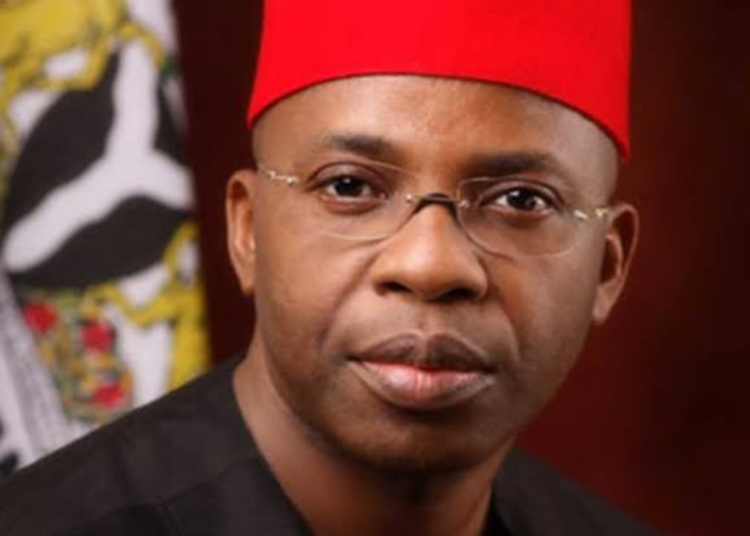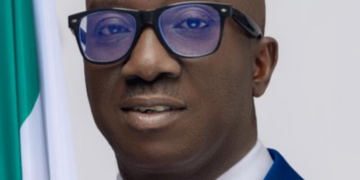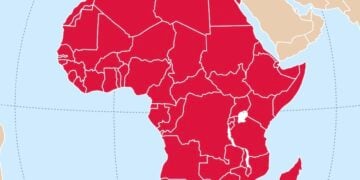The late sage, Obafemi Awolowo, was once described as the main issue in the Nigerian political space. That description, coming from no less a person than General Ibrahim Badamasi Babangida, then a very powerful military president of Nigeria, became an instant sound bite. For many, IBB, as he is popularly known, was not far from being correct.
Chief Awolowo might not have been the most admired politician in Nigeria during his life time but he was such a very strong character; firm in his convictions and never suffered fools gladly. He was described by some commentators as “ruthless” on account of the fact that he was so thorough and conversant with facts that many a politician of his calibre dreaded going into a debate with him. Indeed, no national issue – even during the long military era – was considered settled or concluded unless the position of Chief Awolowo was known.
There is, of course, no intention here to compare that legend of our time with the subject of this essay, Ikedi Ohakim, but this nexus is informed by the fact that the latter is among the few Nigerians, outside Awolowo’s kinsmen, who had the privilege of drawing inspiration directly from Chief Awolowo and has a personal testimony that depicts the latter in a picture that is different from the general perception of him. Ohakim once told a group of journalists the story of his first meeting with Chief Awolowo in 1982.
Ohakim, then a young management trainee in a leading aluminium-manufacturing company, was detailed by his employers to send a quotation for an aluminium work in Chief Awolowo’s home in Ikenne. According to Ohakim, he had long been admiring the Chief from a distance and that the meeting made a big impression on him both immediately and even till date. He said the meeting made him to change his mind about politicians who many believe are difficult to deal with. “I met in Chief Awolowo a very amiable and warm person”, Ohakim had told the journalists after disclosing that the famous politician autographed a book for him which he has kept up till now.
Those who know Dr. Ikedi Ohakim closely might sometimes be tempted to believe that there is a conscious effort by him to be always guided by the lesson he learnt from that encounter so early in life.
The opportunity to serve at a higher level came in 2007 when he was elected the fourth civilian governor of Imo state and since then, Ikedi Ohakim seems to have become the main issue in Imo politics; perhaps an unintended consequence of a grand conspiracy that denied him a renewed mandate from the Imo electorate four years later.
Since then, rancour and bitter rivalry have become the order of the day in a state that was once exemplary in socio-political harmony.
Inevitably, the good people of Imo state have not failed to seize every available opportunity to express their disavowal of the circumstances that led to the truncation of the mandate they freely gave Ohakim in 2011.
The result is at today, Ikedi Ohakim personifies the collective idea of the good people of Imo state of a purposeful and honest leadership. Minus the turnaround being experienced through the efforts of the current governor, Senator Hope Uzodimma, to give the people a new lease of life, it is not uncommon to hear things like, “this state died after Ohakim”. Little wonder that today, Ohakim is the only former governor that would walk the streets of Owerri and get applause.
Undoubtedly, the Ohakim phobia has heightened in the last three years with the emergence of Governor Uzodimma, a bosom friend and political ally of his. The fear within the anti-Ohakim circle is that Uzodimma would not only bring him too close for their comfort but could also help catapult him to a height where they would never get at him again. This fear is genuine but two things ought to be pointed out here.
One, Ohakim, even outside being a friend and ally of the current governor, had long made up his mind that as a statesman, he would work with any governor of the state that is going in the right direction. Unknown to many, he tried all he could to even work with his immediate successor, Rochas Okorocha, the unintended beneficiary of the conspiracy of 2011. In the eight years of Okoroacha’s reign and despite the hostilities from the governor and his handlers, Ohakim wrote several letters to him, with pieces of advice on crucial issues.
Even though Okorocha and his men decided to misinterpret and misrepresent those gestures, Ohakim had nothing else in his mind other than the good of the state and its people.
It was the same principle that made him rally round Rt. Hon. Emeka Ihedioha after the latter was declared winner of the 2019 governorship election.
Fortunately for both of them, Uzodimma has performed so creditably well that Ohakim’s traducers have again began to lose sleep. As far as they are concerned, Ohakim should not be seen to be associated with Uzodimma’s administration.
Unfortunately, Ihedioha’s tenure was short lived and because of the way things happened, Uzodimma did not receive any handover from him just as he, Ihedioha, did not receive from Okorocha.
In other words, a bigger void was even staring before Uzodimma upon assumption of office and again, the only fellow that could provide any succour was Ohakim. Ohakim had, in response to calls by some well meaning Nigerians and Imo indigenes, indicated interest to run for the seat of his native senatorial zone, what is popularly known in the state as Okigwe zone. But in a dramatic twist of events, some elements rose in stiff opposition and the former governor, after reading the hand writing on the wall, withdrew from the race, less than twenty-four hours to the primary election.
But little did he know that he had seen nothing yet. He was to receive the biggest shock of his life after escaping assassination on January 2, 2023 on his way to a political gathering somewhere in Ehime Mbano within the same Okigwe zone. Dr. Ohakim was riding in a bullet-proof car with two of his children when the assailants rained bullets on the vehicle. Unable to get at their target, the hoodlums turned to the patrol vehicle accompanying him, killed all the four security personnel plus the driver and set their bodies ablaze. Even though no direct link has been officially established between his political opponents and the incident, pundits had no difficulty in coming to the conclusion that there is a heightened desperation to finally take out Ohakim.
These unrelenting fellows re-enacted their antics a couple of weeks ago. In a report carried by a popular national newspaper, Dr. Ohakim was accused of leading a group of people in a proposed revolt against Governor Uzodimma for not supporting his bid for a ministerial appointment in the administration of President Bola Tinubu. Clearly, the publication in question was targeted at polluting the mind of the governor.
If this amount of energy is being expended to stop a mere ministerial nomination, then it is reasonable to say that those involved in this inglorious venture may have a very long way to go to kill a career that has spanned over three decades.
Overall, the controversy surrounding the publication under reference, knowingly and unknowingly, amounts to a blackmail on Governor Uzodinma since the attack was targeted at dissuading him from nominating Ohakim, assuming that he has any such intentions. In other words, if the blackmailers succeed in stopping the former governor this time around as they are boasting, they will only proceed to blackmail Governor Uzodimma in the next round of their scheme; and the victim may no longer be Ohakim but someone else.
Whether we like it or not, Ohakim would have been an asset to the state if he had gone to the senate as he had wanted to.
Is it not appropriate that we make concerted efforts to tackle the menace, at least to a reasonable minimum?
* Otuokere, a legal pactitioner and retired perm. sec. writes from Owerri.











